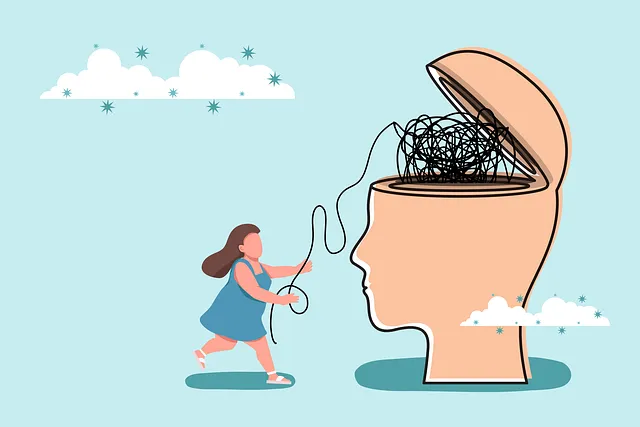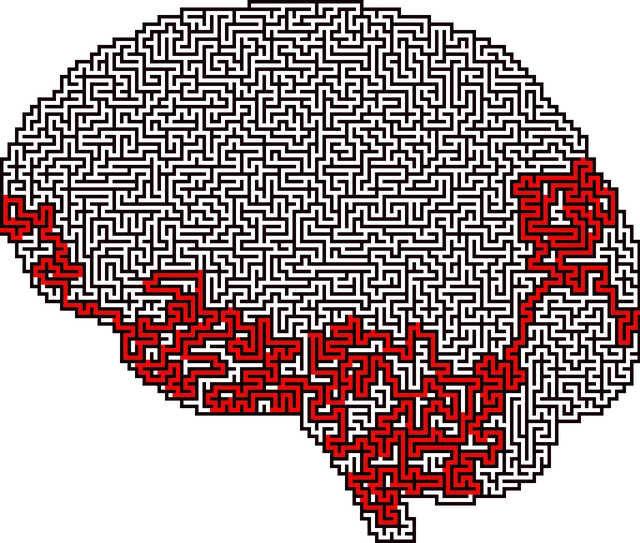Resilience is key to good mental health, as emphasized by experts from superior Kaiser Permanente mental health services. The Resilient Factors Method (RFM) identifies 'resilient assets' like social connections and positive coping strategies to empower individuals facing challenges. Kaiser Permanente integrates stress management techniques into their care, offers accessible resources, and provides cultural competency training for providers. Effective resilience-building exercises tailored to diverse populations, incorporating practices like Compassion Cultivation, are crucial. Implementing RFM in clinical settings enhances mental health services through personalized interventions and social skills training. Measuring success through structured exercises evaluates improvements in emotional healing and well-being over time, refining Kaiser Permanente's programs to meet client needs.
Resilience is a powerful tool for navigating life’s challenges, and RFM (Resilience, Flexibility, and Mindfulness) exercises have emerged as an effective means of fostering mental well-being. This article explores how organizations like Kaiser Permanente are revolutionizing mental health support with RFM. We delve into the benefits, design principles, and practical implementation strategies for these exercises, highlighting Kaiser’s superior approach to enhancing resilience among their patients. Additionally, we discuss evaluation methods to measure the impact and success of RFM programs.
- Understanding RFM and Its Role in Mental Health Support
- Kaiser Permanente's Approach to Enhancing Resilience
- Designing Effective Resilience-Building Exercises
- Implementing RFM in a Clinical Setting: Best Practices
- Measuring Success: Evaluating the Impact of RFM Programs
Understanding RFM and Its Role in Mental Health Support

Resilience, as defined by Kaiser Permanente mental health services experts, is a crucial factor in maintaining good mental health and overall well-being. Understanding Resilient Factors Method (RFM) is essential for those seeking superior mental health support. RFM is a framework that identifies and leverages protective factors, known as resilient assets, to enhance an individual’s ability to navigate life’s challenges and adversities. By focusing on these assets, individuals can build resilience, a key component in stress reduction methods and mood management.
This approach recognizes that having strong resilient building blocks within one’s life can significantly impact their mental health and recovery journey. Kaiser Permanente’s research highlights the importance of social connections, positive coping strategies, and access to meaningful resources as core elements of RFM. By fostering these aspects, individuals are better equipped to cope with stress, maintain a stable mood, and adapt to changes, ultimately leading to improved mental resilience.
Kaiser Permanente's Approach to Enhancing Resilience

Kaiser Permanente, renowned for its superior Kaiser Permanente mental health services, has pioneered an innovative approach to building resilience among its members and employees. The organization recognizes that fostering resilience is a key component in promoting overall well-being and preventing mental health crises. Their strategy involves a holistic blend of programs and training aimed at empowering individuals to navigate life’s challenges more effectively.
One notable initiative is the integration of stress management techniques into their healthcare services. By providing accessible resources and education, Kaiser Permanente enables its members to develop coping mechanisms for everyday stressors. Additionally, they offer cultural competency training for healthcare providers, ensuring that emotional intelligence and empathy are at the forefront of patient interactions. This approach not only enhances the quality of care but also creates a supportive environment where individuals can openly discuss their mental health concerns.
Designing Effective Resilience-Building Exercises

Designing Effective Resilience-Building Exercises plays a pivotal role in enhancing the mental health and overall well-being of individuals, especially those seeking superior Kaiser Permanente mental health services. A well-structured resilience program can equip people with coping strategies to navigate life’s challenges. These exercises should be tailored to cater to diverse needs, ensuring they are inclusive and accessible. One effective approach is integrating Compassion Cultivation Practices, which foster empathy and kindness towards oneself and others. Such practices have been shown to reduce stress and promote positive thinking—a cornerstone of building resilience.
When designing these exercises, a comprehensive Risk Assessment for Mental Health Professionals becomes essential. This assessment helps identify potential risks and vulnerabilities among participants, enabling instructors to adapt activities accordingly. By combining evidence-based techniques with personalized considerations, resilience-building workshops can offer transformative experiences. Encouraging open communication, fostering a sense of community, and incorporating creative outlets are strategies that enhance engagement and ensure the exercises resonate with individuals on a deeper level.
Implementing RFM in a Clinical Setting: Best Practices

Implementing RFM (Resilience, Flexibility, and Mindfulness) in a clinical setting offers a powerful approach to enhancing mental health services, particularly within organizations like Kaiser Permanente, known for their commitment to superior patient care. Best practices involve integrating RFM into existing therapy models, ensuring comprehensive training for all mental health professionals. This includes equipping them with effective communication strategies to facilitate patient engagement and understanding of resilience-building techniques.
A structured risk assessment is crucial before initiating RFM exercises, allowing professionals to tailor interventions to individual needs. Social skills training should also be incorporated to foster a supportive environment where patients can openly discuss their experiences and build connections. By combining these practices, Kaiser Permanente mental health services can offer more personalized and effective treatment, ultimately improving patient outcomes and satisfaction.
Measuring Success: Evaluating the Impact of RFM Programs

Measuring success is a critical aspect of evaluating the impact of RFM (Resilience, Flexibility, and Mindfulness) programs, especially in mental health initiatives like those offered by Kaiser Permanente. The superior quality of their mental health services is evident when tracking the progress of participants through these structured exercises. By assessing changes in emotional healing processes, social skills training, and inner strength development, researchers and practitioners can gauge the effectiveness of the RFM approach.
This evaluation method allows for a comprehensive understanding of how individuals’ mental well-being improves over time. The data collected from such assessments provides valuable insights, enabling Kaiser Permanente to refine their programs and ensure they meet the diverse needs of their clients. Ultimately, this strategic evaluation contributes to the ongoing enhancement of superior mental health services, fostering resilience and emotional healing on a larger scale.
The implementation of Resilient Factors Model (RFM) resilience-building exercises offers a promising approach to enhancing mental health support, as evidenced by Kaiser Permanente’s successful initiatives. By integrating these practices into clinical settings, healthcare providers can empower individuals to develop coping mechanisms and build mental fortitude. The best practices highlighted in this article provide a roadmap for effective implementation, ensuring that RFM programs deliver tangible benefits and contribute to the superior Kaiser Permanente mental health services that are renowned nationwide. Through measured evaluation, the impact of these exercises can be continuously improved, benefiting those seeking resilience-building support.






